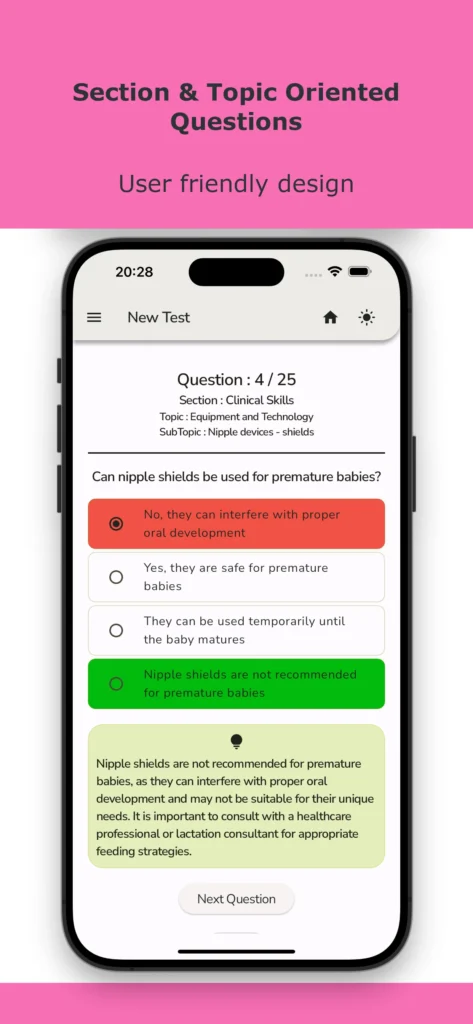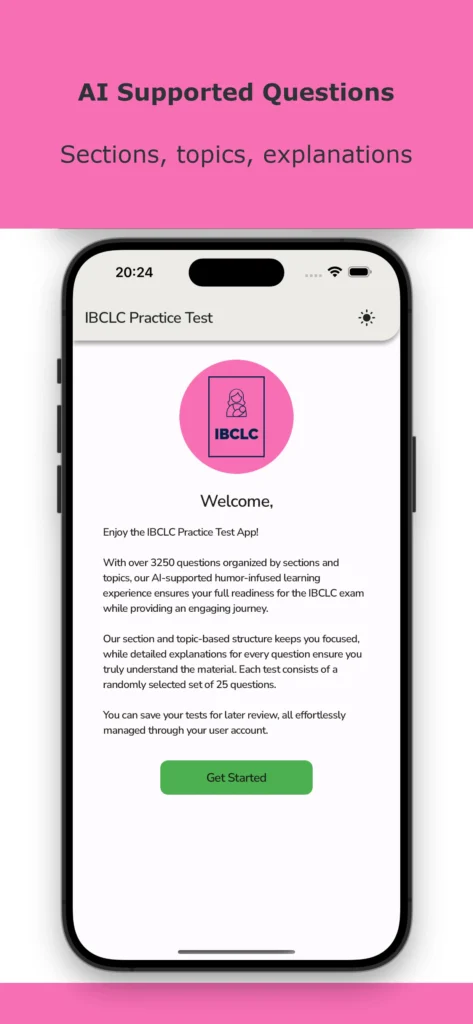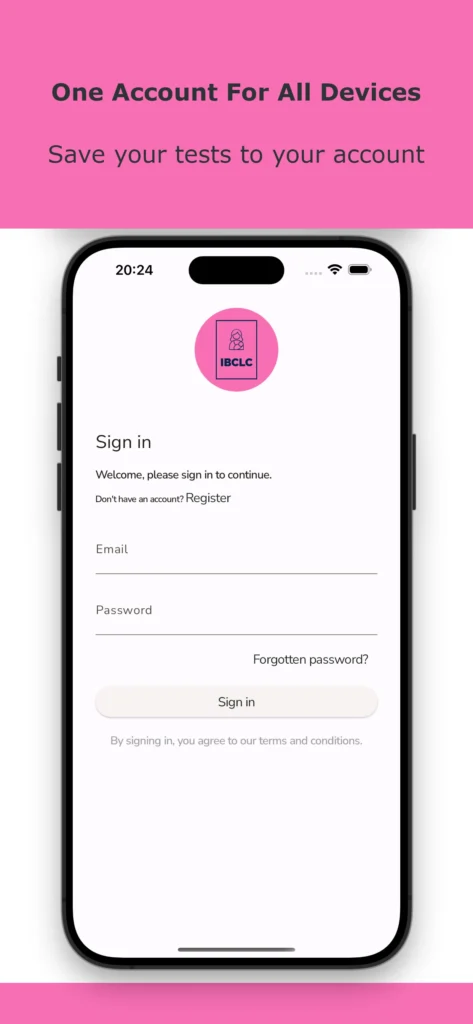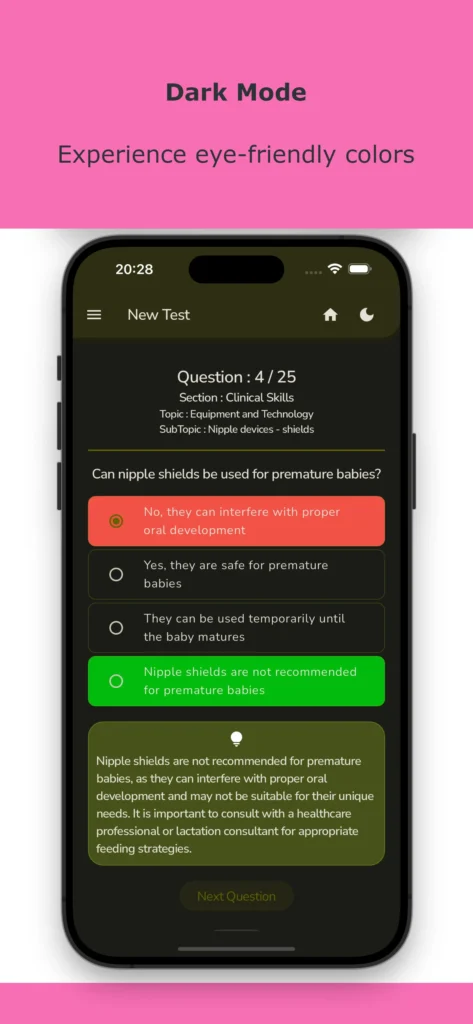Introduction to IBCLC
If you’re passionate about supporting breastfeeding mothers and infants, becoming an International Board Certified Lactation Consultant (IBCLC) can be a rewarding career choice. In this section, we will introduce you to the IBCLC certification and the important role it plays in promoting breastfeeding and providing expert lactation support.
Breastfeeding is a natural and beneficial way to nourish and bond with your baby. However, many mothers face challenges and may require professional assistance to establish and maintain successful breastfeeding. This is where IBCLCs come in.
**What is IBCLC?**
IBCLC stands for International Board Certified Lactation Consultant. An IBCLC is a healthcare professional who specializes in the clinical management of breastfeeding. They have completed extensive training and education in lactation and breastfeeding support, and have passed a rigorous examination to become certified.
**Why is IBCLC Certification Important?**
IBCLC certification is the gold standard for lactation consultants. It ensures that the consultant has the knowledge, skills, and experience to provide evidence-based care and support to breastfeeding families. IBCLCs are trained to assess and address a wide range of breastfeeding challenges, including latch difficulties, low milk supply, nipple pain, and infant weight gain issues.
**How to Become an IBCLC?**
To become an IBCLC, you must meet specific eligibility criteria set by the International Board of Lactation Consultant Examiners (IBLCE). This includes completing a minimum of 90 hours of lactation-specific education, completing clinical practice hours, and obtaining a certain number of hours of supervised clinical experience. Once you meet the eligibility requirements, you can apply to sit for the IBCLC examination.
**Benefits of Working with an IBCLC**
Working with an IBCLC can greatly increase your chances of breastfeeding success. IBCLCs provide individualized care and support, helping you overcome any challenges you may face on your breastfeeding journey. They can help you with proper latch and positioning, assess your baby’s feeding and growth, and provide guidance on milk supply and pumping.
**Conclusion**
In this section, we have introduced you to the IBCLC certification and the important role IBCLCs play in supporting breastfeeding mothers and infants. IBCLCs are highly trained professionals who provide evidence-based care and support to help families achieve their breastfeeding goals. If you’re considering a career in lactation support or if you’re a breastfeeding mother seeking expert guidance, working with an IBCLC can make a significant difference in your breastfeeding experience.
Benefits of Working with an IBCLC
Expert Guidance and Support
When it comes to breastfeeding, having the support of an International Board Certified Lactation Consultant (IBCLC) can make a world of difference. IBCLCs are highly trained professionals who specialize in lactation and breastfeeding support. They have extensive knowledge and experience in helping mothers and babies overcome breastfeeding challenges and achieve successful breastfeeding journeys.
Working with an IBCLC ensures that you receive expert guidance and support tailored to your specific needs. They can provide you with evidence-based information, answer your questions, and address any concerns you may have. Whether you’re a first-time mom or have previous breastfeeding experience, an IBCLC can offer valuable insights and strategies to help you navigate the breastfeeding journey with confidence.
Individualized Care and Problem-Solving
Every breastfeeding journey is unique, and what works for one mother and baby may not work for another. IBCLCs understand this and provide individualized care and problem-solving. They take the time to assess your specific situation, including factors such as latch, milk supply, and baby’s weight gain, to develop a personalized plan that meets your breastfeeding goals.
IBCLCs are skilled in identifying and addressing common breastfeeding challenges, such as sore nipples, low milk supply, and difficulties with latching. They can help troubleshoot issues, provide practical tips and techniques, and offer emotional support throughout your breastfeeding journey. With their expertise, you can overcome obstacles and achieve a positive breastfeeding experience.
Continuity of Care
One of the key benefits of working with an IBCLC is the continuity of care they provide. From prenatal education to postpartum support, IBCLCs are there for you every step of the way. They can help you prepare for breastfeeding during pregnancy, offering guidance on positioning, latch techniques, and establishing a good milk supply.
After your baby is born, an IBCLC can assist with initial breastfeeding, ensuring a proper latch and addressing any early challenges. They can also provide ongoing support as your breastfeeding journey progresses, helping you navigate growth spurts, introducing solids, and transitioning to pumping or weaning.
Access to Additional Resources
IBCLCs have a wealth of knowledge and resources at their disposal. They stay up-to-date with the latest research and best practices in lactation and breastfeeding support. When you work with an IBCLC, you gain access to this valuable information and resources.
An IBCLC can recommend helpful books, websites, and support groups that can further enhance your breastfeeding experience. They can also connect you with other healthcare professionals, such as pediatricians or lactation support groups, if additional specialized care is needed.
Peace of Mind
Perhaps one of the most significant benefits of working with an IBCLC is the peace of mind it brings. Breastfeeding can be a challenging and emotional journey, and having a knowledgeable and supportive professional by your side can alleviate anxiety and provide reassurance.
Knowing that you have an IBCLC to turn to for guidance and support can boost your confidence and help you overcome any obstacles that may arise. With their expertise and compassionate care, IBCLCs empower you to make informed decisions and navigate the breastfeeding journey with confidence and peace of mind.
How to Become an IBCLC
Becoming an International Board Certified Lactation Consultant (IBCLC) is a rewarding and fulfilling career path for those passionate about supporting breastfeeding mothers and infants. If you are interested in becoming an IBCLC, here is a step-by-step guide to help you navigate the certification process.
1. Meet the Eligibility Requirements:
To become an IBCLC, you must meet the eligibility requirements set by the International Board of Lactation Consultant Examiners (IBLCE). These requirements include completing specific lactation education, health science education, and clinical experience hours. It is important to review the eligibility requirements in detail to ensure you meet all the criteria.
2. Complete the Required Education:
Once you have confirmed your eligibility, the next step is to complete the required lactation education. This education can be obtained through various pathways, including accredited programs, college courses, or online training. It is essential to choose a program that is recognized by the IBLCE to ensure your education meets the certification standards.
3. Gain Clinical Experience:
In addition to the educational component, you must also gain clinical experience in lactation support. This can be achieved by working under the supervision of a qualified IBCLC or through internships and volunteer opportunities at hospitals, clinics, or breastfeeding support organizations. The IBLCE requires a minimum number of clinical hours to be completed before applying for certification.
4. Prepare for the Exam:
The IBCLC certification exam is a comprehensive test that assesses your knowledge and skills in lactation consulting. It covers various topics, including anatomy and physiology of lactation, infant feeding practices, breastfeeding challenges, and professional ethics. To prepare for the exam, you can enroll in review courses, study guides, and practice exams to enhance your understanding and test-taking skills.
5. Apply for Certification:
Once you have completed the required education and clinical experience, you can apply for the IBCLC certification exam. The application process involves submitting your educational transcripts, clinical experience verification, and payment of the exam fee. It is important to carefully review the application requirements and ensure all documents are submitted accurately.
6. Take the Exam:
After your application is approved, you will receive information about scheduling your exam. The IBCLC certification exam is a computer-based test that is administered at designated testing centers. It consists of multiple-choice questions and case studies that assess your knowledge and ability to apply lactation consulting principles in real-life scenarios.
7. Maintain Certification:
Once you have successfully passed the IBCLC certification exam, you will be awarded the IBCLC credential. However, it is important to note that IBCLC certification is not a one-time achievement. To maintain your certification, you must participate in continuing education activities and recertify every five years. This ensures that you stay updated with the latest research and best practices in lactation consulting.
Becoming an IBCLC requires dedication, commitment, and a genuine passion for supporting breastfeeding families. By following these steps and investing in your education and experience, you can embark on a fulfilling career as an IBCLC and make a positive impact on the lives of mothers and infants.
Finding an IBCLC Near You
If you’re looking for a certified International Lactation Consultant (IBCLC) near you, you’ve come to the right place. Finding a qualified IBCLC can make a world of difference in your breastfeeding journey. In this section, we’ll guide you on how to find an IBCLC in your area.
1. Ask your healthcare provider: Start by reaching out to your healthcare provider, such as your obstetrician, pediatrician, or midwife. They may have a list of IBCLCs they can recommend. These professionals often work closely with IBCLCs and can provide valuable referrals.
2. Search online directories: There are several online directories that can help you find an IBCLC near you. One popular directory is the International Lactation Consultant Association (ILCA) website. They have a search feature where you can enter your location and find IBCLCs in your area. Another option is the United States Lactation Consultant Association (USLCA) website, which provides a similar search feature.
3. Reach out to local breastfeeding support groups: Local breastfeeding support groups can be a great resource for finding an IBCLC. These groups often have connections with IBCLCs and can provide recommendations based on their own experiences. You can find local support groups through online platforms, community centers, or by asking your healthcare provider.
4. Get recommendations from other breastfeeding moms: Word-of-mouth recommendations can be incredibly valuable when it comes to finding an IBCLC. Reach out to other breastfeeding moms in your community or online breastfeeding forums and ask for their recommendations. They can share their personal experiences and help you find an IBCLC who is a good fit for you.
Once you have a list of potential IBCLCs, it’s important to do some research and consider a few factors before making your final decision. Look for an IBCLC who has experience working with breastfeeding moms and has a good reputation. Check if they are certified by the International Board of Lactation Consultant Examiners (IBLCE), which is the gold standard for IBCLC certification.
Remember, finding the right IBCLC can greatly enhance your breastfeeding experience. They can provide valuable guidance, support, and evidence-based information to help you overcome any challenges you may face. Don’t hesitate to reach out and seek the help of an IBCLC near you.
Resources for IBCLC Certification
Preparing for the IBCLC Certification
If you’re considering becoming an International Board Certified Lactation Consultant (IBCLC), it’s important to have the right resources to help you succeed. Here are some valuable resources to guide you through the process:
- 1. International Lactation Consultant Association (ILCA): ILCA is a global organization that provides support, education, and resources for lactation consultants. They offer a variety of resources, including webinars, conferences, and publications, to help you prepare for the IBCLC certification.
- 2. Lactation Education Accreditation and Approval Review Committee (LEAARC): LEAARC is responsible for accrediting lactation education programs. They have a list of approved programs that meet the requirements for the IBCLC certification. You can find a list of accredited programs on their website.
- 3. Breastfeeding Support Groups: Joining a breastfeeding support group can provide you with valuable hands-on experience and support from experienced lactation consultants. These groups often have meetings, workshops, and online forums where you can learn from others and ask questions.
Studying for the IBCLC Exam
Once you have completed the required lactation education program, you will need to study for the IBCLC exam. Here are some resources to help you prepare:
- 1. Core Curriculum for Lactation Consultant Practice: This comprehensive textbook covers all the essential knowledge and skills required for the IBCLC certification. It is a valuable resource for studying and reference.
- 2. Online Study Courses: There are several online study courses available that are specifically designed to help you prepare for the IBCLC exam. These courses often include practice exams, study guides, and interactive learning modules.
- 3. Study Groups: Joining a study group can provide you with additional support and motivation. You can collaborate with other aspiring IBCLCs, share resources, and discuss challenging topics.
Continuing Education and Professional Development
As an IBCLC, it’s important to stay updated with the latest research and best practices in lactation consulting. Here are some resources for continuing education and professional development:
- 1. Conferences and Workshops: Attending conferences and workshops can provide you with opportunities to learn from experts in the field, network with other professionals, and stay updated with the latest advancements in lactation consulting.
- 2. Online Courses and Webinars: There are many online courses and webinars available that cover a wide range of topics related to lactation consulting. These resources allow you to learn at your own pace and from the comfort of your own home.
- 3. Peer Support and Mentoring: Connecting with experienced IBCLCs through peer support groups and mentoring programs can provide you with valuable guidance and support throughout your career.
By utilizing these resources, you can enhance your knowledge, skills, and confidence as an IBCLC. Remember to stay updated with the latest research and best practices in lactation consulting to provide the best possible care for breastfeeding families.
Conclusion
In conclusion, becoming an International Board Certified Lactation Consultant (IBCLC) is a significant achievement for anyone passionate about supporting breastfeeding mothers and infants. The IBCLC certification is recognized globally and signifies a high level of expertise and knowledge in lactation consulting.
By obtaining the IBCLC certification, you will join a community of professionals dedicated to promoting and supporting breastfeeding. You will have the opportunity to make a positive impact on the lives of mothers and babies, helping them overcome breastfeeding challenges and achieve their breastfeeding goals.
As an IBCLC, you will possess the necessary skills to provide evidence-based lactation support and guidance. You will be equipped to assess and address breastfeeding difficulties, provide education and counseling, and advocate for breastfeeding-friendly policies and practices.
The IBCLC certification also demonstrates your commitment to ongoing professional development. To maintain your certification, you will need to engage in continuing education and stay updated on the latest research and best practices in lactation consulting.
In summary, the journey to becoming an IBCLC is a rewarding one. It requires dedication, hard work, and a genuine passion for supporting breastfeeding. However, the impact you can make as an IBCLC is immeasurable, as you help empower mothers and promote the health and well-being of infants through breastfeeding. If you are interested in pursuing a career in lactation consulting, consider obtaining the IBCLC certification and join the global network of breastfeeding advocates and experts.








